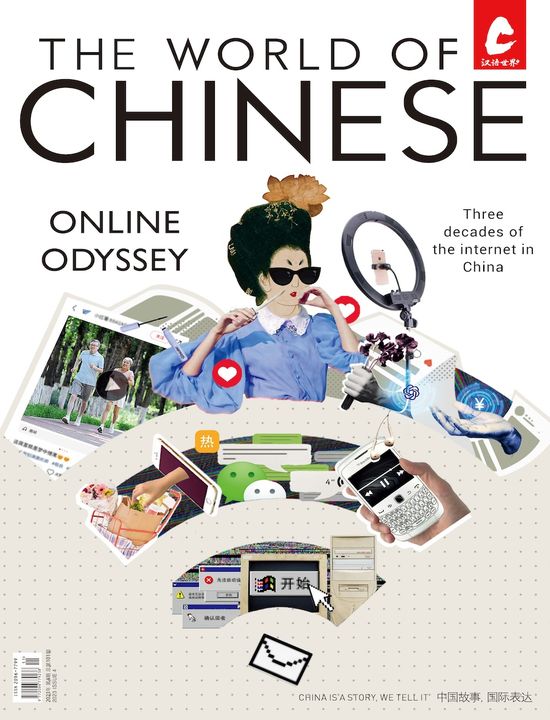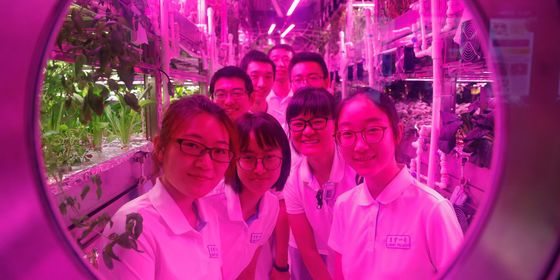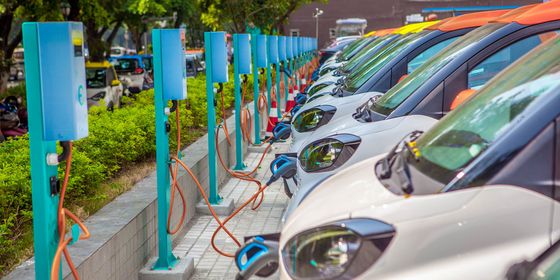Didi’s same-sex rides, pigs with codes, nuclear safety upgrades, and self-service store on wheels
Each Thursday, The World of Chinese takes the most ground-breaking, impressive, or just plain weird technological advancements related to the Middle Kingdom and serves them in bite-sized chunks to keep you up-to-date on the latest news in the world of Chinese technology.
No riding with the opposite sex
Ride-hailing app Didi Chuxing has reinstated its nighttime ride-sharing service, which was suspended after the May murder of a passenger, with several caveats—passengers may only use the service at 10 pm to midnight and 5 am to 6 am, and they and the driver must be the same sex.
The company is also testing recording functions that can be turned on during the journey.
Though Didi hasn’t announced how long these policies will be in place, the platform is expected to start “limited tests” for new safety upgrades by June 22 in response to the murder and other reports of harassment, assault, and robbery. New functions will include a “convoy mode,” which will send the vehicle’s route to the passenger’s emergency contact and flag it if there’s any deviation, and the “mutual safety card,” which lets passengers and drivers view each other’s information before the ride.
Besides the elephant in the room—namely, how same sex rideshares are necessarily safer than riding with the opposite sex—users are mystified whether the rules also apply to couples, families, and groups of friends. Moreover, according to Didi’s own company survey in March, only 10 percent of its drivers are female, compared to around 50 percent of female passengers. No word yet on how the platform will tackle its problems with faked information and drivers who register with other people’s names and vehicles (a loophole that benefited the driver in the murder).
Pigs with QR codes
Alibaba Cloud and the Tequ Group, a pig farming enterprise in Sichuan, are teaming up to explore a new system to boost pig farming output with artificial intelligence, a recent computing conference in Shanghai revealed.
Under the ET Brain Agricultural (ETBA) system, pigs raised by Alibaba Cloud will each have a digital ID. They will be monitored and analyze for relevant data such as age, weight, and immunity status in real time through visual recognition and voice recognition. Supposedly, this can also further regulate porcine viruses by measuring pigs’ health using infrared devices, which will breeding, reduce death rates, and increasing farmers’ revenues.
“Originally, we had to depend on vets to look at [the animals], now we can do it automatically,” Weng Degen, chairman of Tequ Group, told reporters.
The ETBA is also being applied to apple and melon-farming. According to Hu Xiaoming, president of Alibaba Cloud, each fruit under the ETBA is assigned a QR code, with which farmers can see when they were planted, the times they get sunlight, and how much rainwater they received to determine the best time to pick. The information will all be collected in a database, which can help perfect a scheme for planting and fertilizing.
China improves nuclear safety
Past events have shown that blessing by Daoist monks is no-go for ensuring nuclear reactor safety, at least in the eyes of Chinese authorities ever suspicious of superstitious and un-scientific practices.
Shandong province’s CAP1400 nuclear reactors, though, have decided to upgrade their safety the old-fashioned way: developing a system that could work without electricity, in order to prevent a disaster like 2011’s Fukushima Daiichi incident, when a 15-meter tsunami disabled the power supply and cooling system of three nuclear reactors and led to a devastating meltdown.
China aims to become the world’s biggest nuclear nation by 2026, with plans to build 60 nuclear power plants by that date. However, after the Fukushima Incident, 88.7 percent of the Chinese public were reported to believe that nuclear power had “potential dangers and should be used carefully.”
Wang Yinan, a researcher with the Development Research Center of the State Council, told the Global Times that the CAP1400 reactor, with a power rate of 1,400 to 1,500 megawatts, was “thought impossible by US companies for passive safety systems.”
According to the Global Times, the CAP1400 nuclear reactors have gone through the passive safety system and five others technological tests.
Cashier-less store marries driverless delivery
In spite of all its technological advances, China yet to develop a shopping solution for the real shut-ins: Order food on a delivery app, and you still have to talk to the driver. Go to an automated store? You’re out in public and may have to make eye-contact.
Enter the “car shop”: On June 6, Shanghai’s Shenlan Technology launched the Pattaya Autonomous Driving Commercial Vehicle, a new device for “mobile retail.” According to the company, users will be able to simply open a mobile app and call the self-driving car to their door, where it will arrive filled with various products for the customer to choose from.
The company plans to mass produce this product and sell it to a variety of companies so that it may “penetrated into each household, community and business district.” Until this day comes, though, you can rent the car for your business for 250 to 300 per day, and look forward to never having to see your customers’ faces again.











